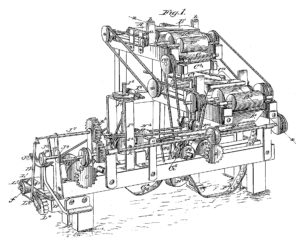
The European patent shall, in each of the Contracting States for which it is granted, have the effect of and be subject to the same conditions as a national patent granted by that State.
The grant of a European patent may be requested for one or more of the Contracting States.
Invention
Patentable inventions
European patents shall be granted for any inventions, in all fields of technology, provided that they are new, involve an inventive step and are susceptible of industrial application.
The following in particular shall not be regarded as inventions:
(a) discoveries, scientific theories and mathematical methods;
(b) aesthetic creations;
(c) schemes, rules and methods for performing mental acts, playing games or doing business, and programs for computers;
(d) presentations of information.
Exceptions to patentability
European patents shall not be granted in respect of:
(a) inventions the commercial exploitation of which would be contrary to “ordre public” or morality; such exploitation shall not be deemed to be so contrary merely because it is prohibited by law or regulation in some or all of the Contracting States;
(b) plant or animal varieties or essentially biological processes for the production of plants or animals; this provision shall not apply to microbiological processes or the products thereof;
(c) methods for treatment of the human or animal body by surgery or therapy and diagnostic methods practised on the human or animal body; this provision shall not apply to products, in particular substances or compositions, for use in any of these methods.
Novelty
An invention shall be considered to be new if it does not form part of the state of the art.
The state of the art shall be held to comprise everything made available to the public by means of a written or oral description, by use, or in any other way, before the date of filing of the European patent application. Additionally, the content of European patent applications as filed, the dates of filing of which are prior to the date and which were published on or after that date, shall be considered as comprised in the state of the art. This not exclude the patentability of any substance or composition, comprised in the state of the art, for use in a method, provided that its use for any such method is not comprised in the state of the art, also not exclude the patentability of any substance or composition for any specific use in a method, provided that such use is not comprised in the state of the art.
Non-prejudicial disclosures
For the EP application, a disclosure of the invention shall not be taken into consideration if it occurred no earlier than six months preceding the filing of the European patent application and if it was due to, or in consequence of:
(a) an evident abuse in relation to the applicant or his legal predecessor, or
(b) the fact that the applicant or his legal predecessor has displayed the invention at an official, or officially recognised, international exhibition falling within the terms of the Convention on international exhibitions signed at Paris on 22 November 1928 and last revised on 30 November 1972.
Inventive step
An invention shall be considered as involving an inventive step if, having regard to the state of the art, it is not obvious to a person skilled in the art.
Industrial application
An invention shall be considered as susceptible of industrial application if it can be made or used in any kind of industry, including agriculture.
